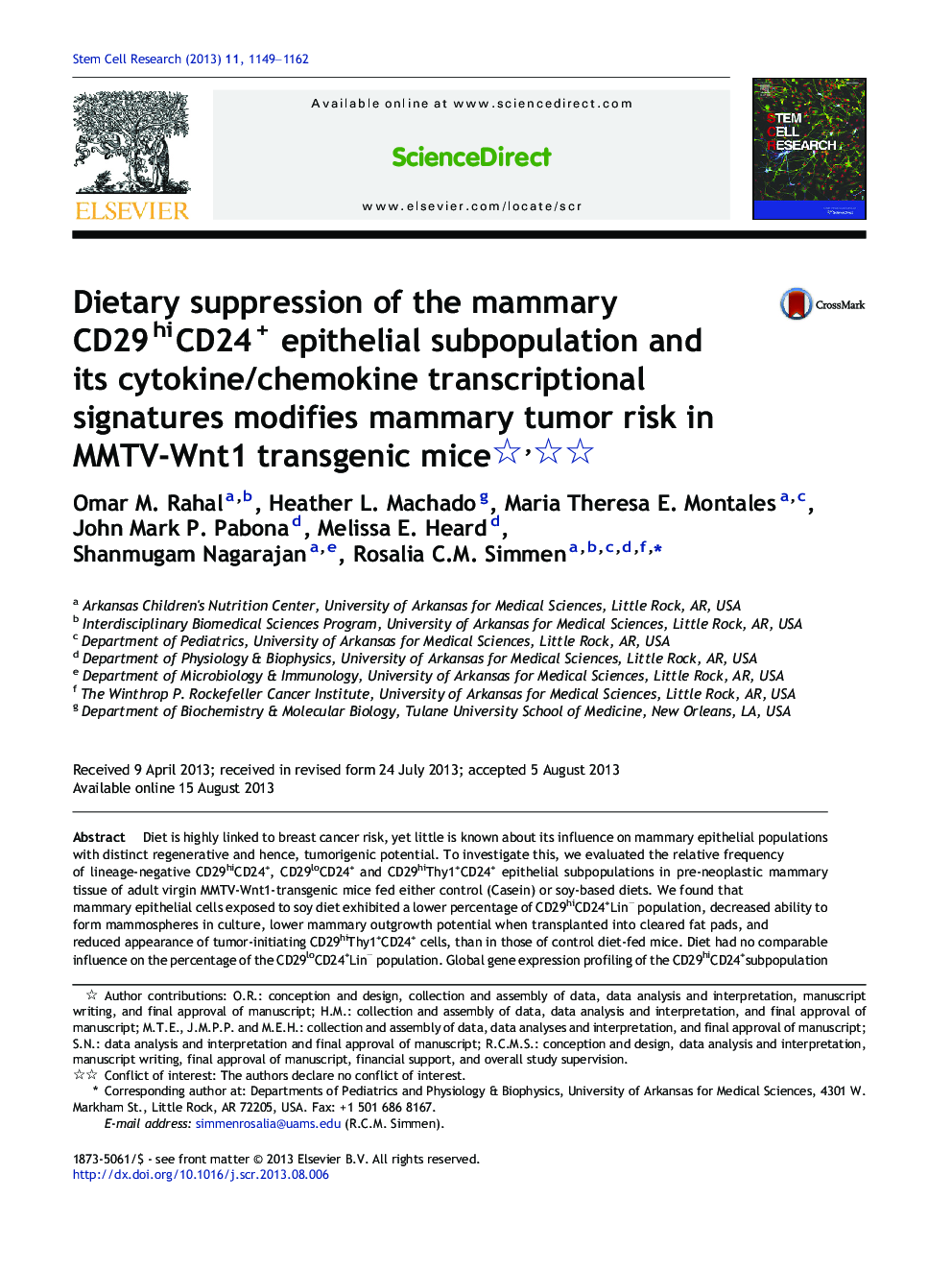| Article ID | Journal | Published Year | Pages | File Type |
|---|---|---|---|---|
| 10891280 | Stem Cell Research | 2013 | 14 Pages |
Abstract
Diet is highly linked to breast cancer risk, yet little is known about its influence on mammary epithelial populations with distinct regenerative and hence, tumorigenic potential. To investigate this, we evaluated the relative frequency of lineage-negative CD29hiCD24+, CD29loCD24+ and CD29hiThy1+CD24+ epithelial subpopulations in pre-neoplastic mammary tissue of adult virgin MMTV-Wnt1-transgenic mice fed either control (Casein) or soy-based diets. We found that mammary epithelial cells exposed to soy diet exhibited a lower percentage of CD29hiCD24+Linâ population, decreased ability to form mammospheres in culture, lower mammary outgrowth potential when transplanted into cleared fat pads, and reduced appearance of tumor-initiating CD29hiThy1+CD24+ cells, than in those of control diet-fed mice. Diet had no comparable influence on the percentage of the CD29loCD24+Linâ population. Global gene expression profiling of the CD29hiCD24+subpopulation revealed markedly altered expression of genes important to inflammation, cytokine and chemokine signaling, and proliferation. Soy-fed relative to casein-fed mice showed lower mammary tumor incidence, shorter tumor latency, and reduced systemic levels of estradiol 17-β, progesterone and interleukin-6. Our results provide evidence for the functional impact of diet on specific epithelial subpopulations that may relate to breast cancer risk and suggest that diet-regulated cues can be further explored for breast cancer risk assessment and prevention.
Related Topics
Life Sciences
Biochemistry, Genetics and Molecular Biology
Biotechnology
Authors
Omar M. Rahal, Heather L. Machado, Maria Theresa E. Montales, John Mark P. Pabona, Melissa E. Heard, Shanmugam Nagarajan, Rosalia C.M. Simmen,
